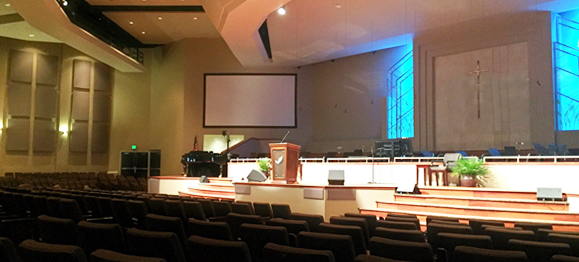
I think one of the most common misconceptions of those who have not served as a senior pastor is that a pastor’s work is only the work of preaching. If you look at it that way, it would seem the pastor hardly works at all—perhaps for an hour two or three times each week.
Yet, when Paul described the “office of a bishop” (pastor), he specifically called it “work.”
This is a true saying, If a man desire the office of a bishop, he desireth a good work.—1 Timothy 3:1
It was a joy a few months back to preach the ordination for our youngest son, Matthew, who will be planting Rock Hill Baptist Church in Fontana, California, in a few months. I chose 1 Timothy 3:1 as my text, and in the message, I noted four aspects of the work ministry.
If you have ever wondered what your pastor does all week, here it is. And if, as a pastor, you’ve ever wondered what aspects of your job you should focus on, here are four core responsibilities.
1. The work of prayer and study
This is one of the earliest responsibilities mentioned of undershepherds in the New Testament, and guarding time for it is the primary reason pastors should learn to delegate other responsibilities.
Wherefore, brethren, look ye out among you seven men of honest report, full of the Holy Ghost and wisdom, whom we may appoint over this business. But we will give ourselves continually to prayer, and to the ministry of the word.—Acts 6:3–4
God commands me to “feed the flock” with the care of an undershepherd.
Feed the flock of God which is among you, taking the oversight thereof, not by constraint, but willingly; not for filthy lucre, but of a ready mind; Neither as being lords over God’s heritage, but being ensamples to the flock. And when the chief Shepherd shall appear, ye shall receive a crown of glory that fadeth not away.—1 Peter 5:2–4
Strong, biblically-rich, theologically-accurate, personally-applicable messages do not just appear on your computer screen. They require hours of study, prayer, and preparation.
If you are a pastor, this is time that you must fight for. There will always be any number of other urgent matters calling for your attention. But you must carve out those hours to pray and study God’s Word for the flock you are to feed.
2. The work of preaching
Although there are preachers who are able to “wing it” in the pulpit, I don’t want to be one of those. The work of preaching is a core responsibility of a pastor, and I never want to treat it flippantly. In fact, it should be the outflow of the prayer and study mentioned before.
God has chosen preaching to both reach the lost and instruct the saved.
For after that in the wisdom of God the world by wisdom knew not God, it pleased God by the foolishness of preaching to save them that believe.—1 Corinthians 1:21
But hath in due times manifested his word through preaching, which is committed unto me according to the commandment of God our Saviour;—Titus 1:3
Although I’ve preached multiple times each week for over thirty years now, I am still always working to grow as a preacher of God’s Word. I never need to improve on the message of Scripture—it’s perfect for every person in every walk of life—but I do work to develop and hone my skill as a preacher.
3. The work of planning and preparing
Being a pastor carries with it a tremendous administrative load. I thank God for the deacons and staff who share this load with me. I could not focus on prayer and study without their help. And yet, I can’t abdicate the final responsibilities of undershepherding to them.
Paul talked about the “care of all the churches.”
Beside those things that are without, that which cometh upon me daily, the care of all the churches.—2 Corinthians 11:28
Certainly he referred primarily to the spiritual care of the church. But as a pastor, you see so many, many administrative aspects related to the spiritual care of a church—buildings, staff development, budgets, counseling, delegation, and that’s just the beginning.
It takes time in prayer and sometimes time to step “out of the current” for a bit to gain the vantage point to plan and prepare for the future of the church.
4. The work of soulwinning
I’ve written before on how soulwinning isn’t just the pastor’s job—it is the church’s job. The Great Commission is for the local church, and pastors are instructed to equip the saints for the work of the ministry.
And he gave some, apostles; and some, prophets; and some, evangelists; and some, pastors and teachers; For the perfecting of the saints, for the work of the ministry, for the edifying of the body of Christ:—Ephesians 4:11–12
We’ve even worked to provide many resources for churches to use in soulwinning and discipleship and training.
Yet, just because soulwinning isn’t only the pastor’s job, doesn’t make it any less his job. One of the greatest joys of my life is leading people to Christ—not just in services, but in personal evangelism.
A good work
If reading this list feels overwhelming to you, remember that the work of a pastor is, in the words of 1 Timothy 3:1, “a good work.” Yes, there is a lot to it. Yes, it never ends. Yes, it requires that you constantly fight for time to do the most important things.
But it also provides the opportunity to study and proclaim the very Word of God that God’s people need. It provides opportunity to see the work of God move forward. And it provides opportunity to reach people, and to lead others in reaching people, with the life-changing message of the gospel.
Yes, the work of the pastor is a good work.



